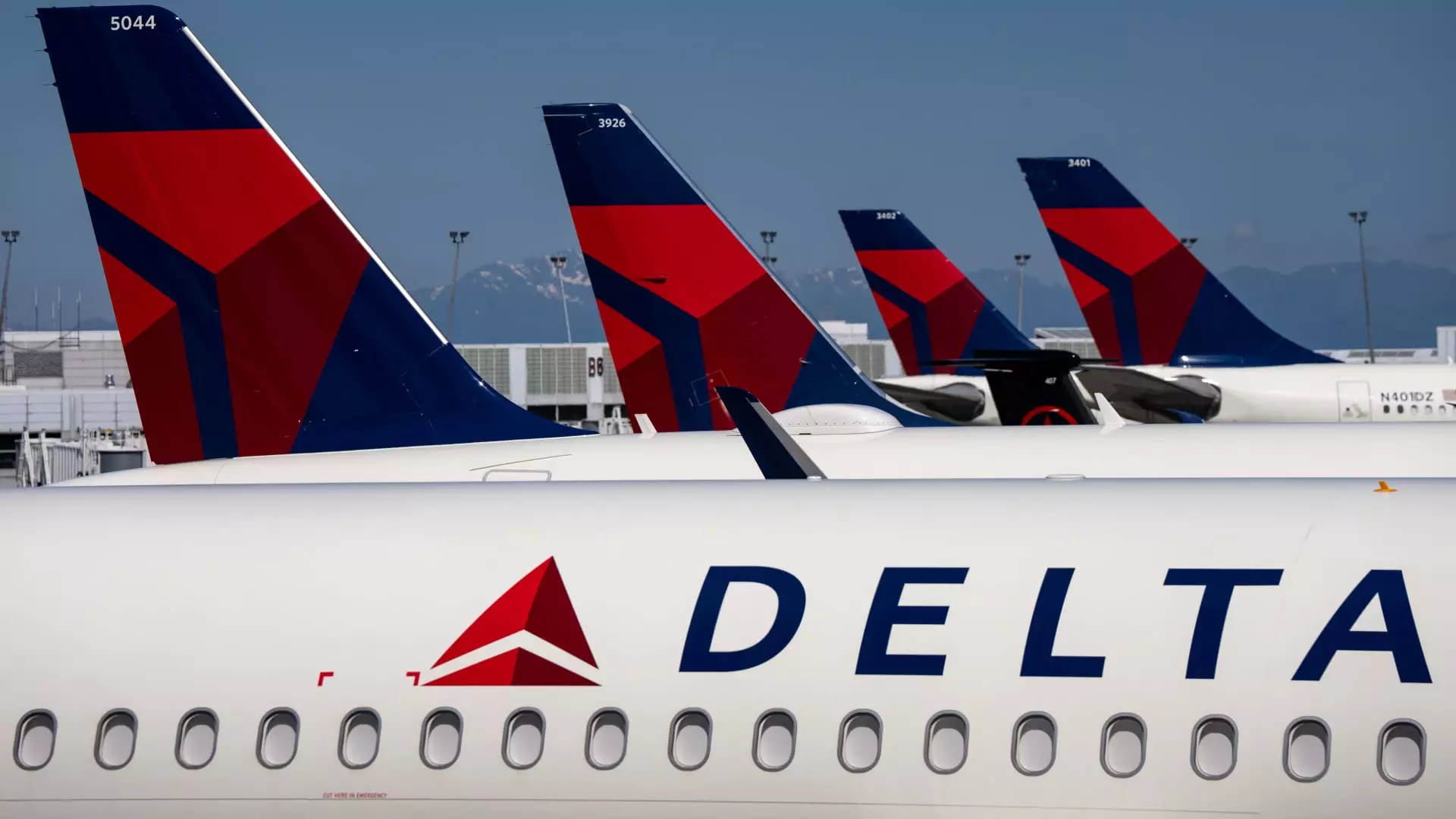Airlines have long been viewed as barometers of consumer confidence and economic stability. As we navigate through a landscape increasingly influenced by volatile political decisions, Delta Air Lines stands as a notable case study. Under the leadership of CEO Ed Bastian, the carrier has made significant adjustments to its expectations for the second half of 2025, citing disappointing bookings and the perceived fallout from President Donald Trump’s trade policies. What was once considered a sturdy forecast of growth is now swaying under economic uncertainties that seem to be just as unpredictable as the weather.
Policy-Induced Somberness: A CEO’s Dilemma
What makes Delta’s predicament especially salient is Bastian’s evolving perspective on the administration’s impact on the airline industry. Earlier this year, he voiced optimism, suggesting that regulatory changes could invigorate the sector. However, as the months have unfolded, that optimism has morphed into caution. Bastian has not hesitated to label Trump’s shifting trade policies as “the wrong approach.” This change in tone reflects a growing trepidation among corporate leaders about the tangible effects of governmental decisions on business landscapes. It raises the question: Can political policy and corporate well-being ever truly be decoupled in today’s interwoven economic tapestry?
Earnings Surprise: Reality vs. Expectations
Contrasting sharply with Wall Street’s confidence, Delta’s second-quarter forecasts point to stagnant revenue growth, projecting a decline of up to 2% or a minimal gain of 2% year-over-year. True to the dynamics of modern economics, it appears that the analysts’ expectations — a modest 1.9% growth — were overly optimistic. An adjusted earnings per share projection of $1.70 to $2.30 sits below analyst benchmarks, sending ripples of concern through investor circles. This stark divergence between expectation and reality encapsulates a broader theme that is becoming all too common: the crisis of confidence driven by external factors.
Consumer Confidence: The Invisible Hand at Play
Delta’s latest outlook reflects troubling signs of not just a slow economy but a consumer base hesitant to spend. Bastian noted a sharp decline in both consumer and corporate confidence—a warning that should be heard across all industries. As business trips are being re-evaluated and corporate spending shrinks, the airline’s once-golden growth projections crumble. This trend is telling of a larger societal issue; citizens appear to be cautiously navigating their priorities amidst economic uncertainties and changing governmental ideologies.
Global Uncertainty: More Than Just Trade Deals
The overarching narrative of economic stagnation amidst political indecisiveness is one that warrants serious examination. Delta’s announcement that it would limit capacity growth underscores a grim anticipation of what may be a continuous trend. “We are protecting margins and cash flow by focusing on what we can control,” Bastian remarked, and therein lies the crux of the issue. When the focus shifts from growth to mere survival, the question becomes not how to thrive, but how to weather the storm — a disheartening perspective most wouldn’t associate with an industry that just a few years ago thrived on robust travel demand.
Other Airlines in the Balance: A Domino Effect
As the first major U.S. airline to revise its forecasts, Delta may be a harbinger of what’s to come for competitors like United, American, and Southwest. Financial analysts have already started to reassess their predictions for the airline industry as a whole. With airlines following suit and preparing for similar drastic reductions in capacity and forecasts, the resulting ripple effect may remind us that a single entity’s challenges are often echoed across an entire sector. The interconnectedness of today’s economy makes the fears of one corporate realm feel like a ball rolling downhill — fast and unpredictable.
In light of Delta’s current challenges, the reality remains that our economic fortunes can sway dramatically based on political decisions. The question remains: How can the airline industry, along with many others, reconcile its future amid such turbulent winds? Amidst the uncertainty, the critical indicators point to the necessity for transformation, adaptability, and perhaps, a redefined relationship with consumers and corporate entities — one that prioritizes long-term resilience over short-term gains.


Leave a Reply